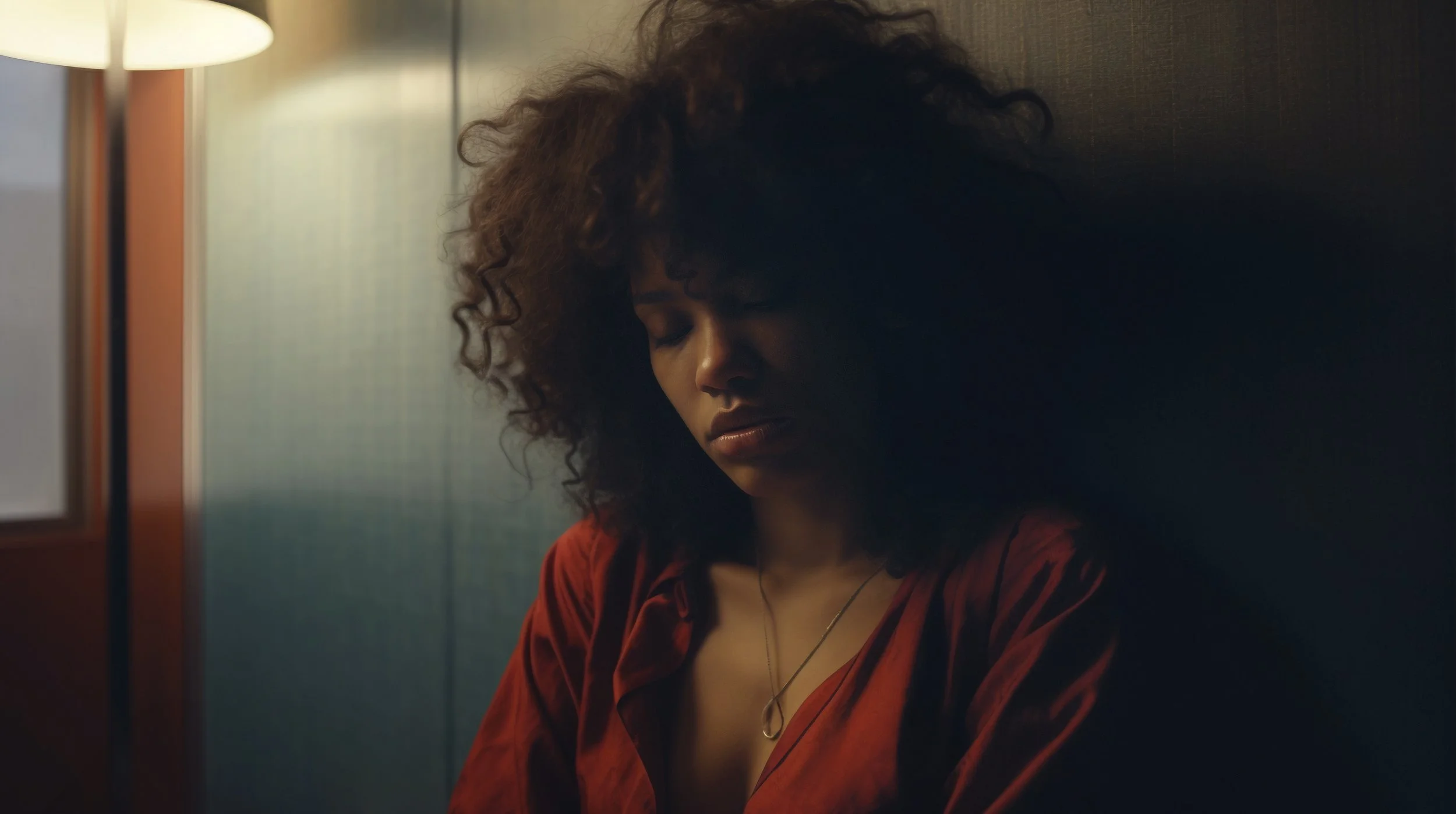
Therapy for Depression
depression in Black Women: It Doesn’t Always Look the Same
Depression for Black women can be silent, hidden under high achievement, caregiving, and the expectation to “push through.” It’s not always endless tears — sometimes it’s numbness, irritability, or exhaustion you can’t shake. The pressure to hold it all together for work, family, and community can mask deep emotional pain.
What depression Looks Like in Black Women
For many of us, depression doesn’t appear as the media portrays it. It can show up in ways that are overlooked, minimized, or mislabeled.




Why Depression Is Often Missed in Black Women
Depression in Black women is frequently overlooked or misinterpreted due to harmful stereotypes like the “Strong Black Woman” or “angry Black woman” trope. These labels can lead providers, loved ones, and even ourselves to dismiss symptoms as “just stress” or “just how you are.”
Research shows that Black women experiencing depression are less likely to be accurately diagnosed and more likely to have symptoms attributed to other issues. The result? Many of us live with depression for years before receiving the right support — if at all.
Here’s the truth: Black women do break. And it’s okay. Asking for help isn’t weakness — it’s the most powerful step you can take toward reclaiming yourself.
Barriers to Getting Help for Depression
Many Black women delay seeking therapy because:
We’ve been conditioned to “be strong” no matter what.
Prior experiences with dismissive or culturally unaware providers erode trust.
Mental health struggles are sometimes stigmatized in our communities.
We rarely see therapists who look like us in mainstream spaces.
Is Depression Treatable? Absolutely.
With the right tools and a therapist who understands your lived experience, depression can improve — even if you’ve felt this way for years. We provide therapy in-person in Long Beach, Concord, and Atlanta, and online throughout California and Georgia.
Cognitive Behavioral Therapy (CBT)
How it helps: Identifies negative thought patterns (“I’m not good enough”) and teaches you to replace them with healthier, realistic perspectives.
What it looks like: Collaborative, skill-focused sessions; practice between appointments to strengthen new habits.
How it helps: Resolves depression linked to past trauma (loss, abuse, racial trauma) by reprocessing those experiences so they no longer weigh you down.
What it looks like: Gentle, guided sets of eye movements or taps while recalling specific memories; relief without needing to recount every detail.
Mindfulness-Based Stress Reduction (MBSR)
How it helps: Reduces rumination and emotional numbness by grounding you in the present moment.
What it looks like: Practical exercises you can do at home, at work, or on the go to reconnect with your body and emotions.
Eye Movement Desensitization & Reprocessing (EMDR)
The Role of Faith in Therapy
For many Black women, faith is not just belief — it’s our anchor, our history, and our way of making sense of life’s challenges. We recognize that your spirituality, church family, and cultural practices may be central to your identity, and therapy should support, not compete with, those values.
Faith integration in therapy can look like:
Opening or closing sessions with prayer.
Exploring scripture alongside therapeutic insights.
Using meditation, music, or storytelling rooted in your heritage.
Navigating how to set boundaries within faith communities while staying connected.
We also understand that some Black women carry pain from church hurt, exclusion, or spiritual abuse. Therapy can be a safe space to unpack those wounds, rebuild trust in your spiritual self, and explore new forms of connection that nurture rather than harm.
Online & In-Person depression Therapy — Accessible and Confidential
Whether you’re in Los Angeles, Long Beach, Concord, Atlanta, or anywhere in California or Georgia, you can choose between secure telehealth sessions and in-person appointments. Both options offer a safe, judgment-free space to heal with a Black woman therapist who sees you.
Meet Our Black Women Therapists
Therapy for Depression FAQs
-
Yes — we accept multiple insurance plans in California and Georgia, including United Healthcare (Optum), Anthem Blue Cross California, Blue Shield of California, Carelon Behavioral Health, Magellan, Blue Cross Blue Shield of Massachusetts, Quest Behavioral Health, Aetna, Horizon BCBS of NJ, Independence BCBS PA, and Cigna. We also offer therapy vouchers for eligible Black women during pregnancy or within one year postpartum.
-
Yes. Even long-term depression can improve with evidence-based treatment and consistent support.
-
Yes — if you wish, your therapist can incorporate prayer, scripture, or spiritual traditions into your sessions.
-
We offer therapy in-person in Long Beach, Concord, and Atlanta, and online anywhere in California or Georgia.
Additional Resources
[Therapy for Anxiety for Black Women]
[Free Therapy for Black Women — Pregnancy & Postpartum]
[Blog: Signs of Depression You Might Be Missing]











